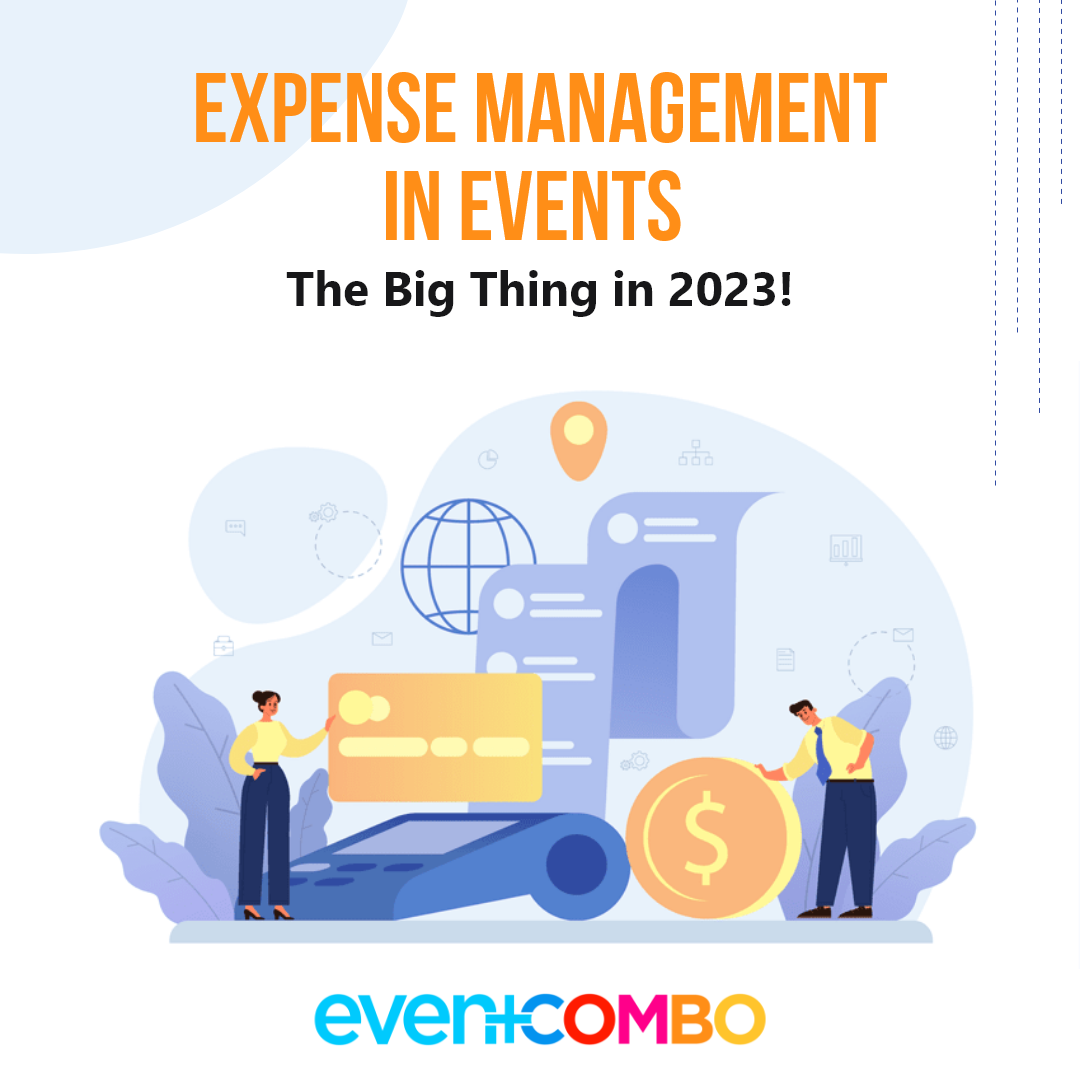

Event expense overages are part and parcel of the deal, whether you are hosting a virtual or in-person event. Conventionally, event budget lives on a spreadsheet and is updated manually, with vendor invoices cobbled together at the last minute. This leaves a lot of room for human error and can lead you to spend way more on the budget you set for your events, which may bring discontent to both your stakeholders and your attendees.
It’s important to reflect on the urgency and cruciality of effective expense management systems for events. With the right approach and skilled event management professionals, you not only save time and measure the success of your events accurately but also avoid additional costs that could crop up later relating to venue rentals, supply of refreshments, equipment setups, and more.
How Can Technology Help with Event Expense Management?
With the return of in-person events on a grander scale, event budgets are being heavily affected by the rising costs accompanied by inflation, staffing shortages, shortage of competitive event-hosting venues, and much more. This is why you must turn to technology to help with event management, especially regulating the expenses of hosting a successful event. It is time to eliminate tedious manual data entry of every incurred expense, primitive Excel formulas, and disconnected systems that mismeasure event costs!
Using event expense management software, you can get complete visibility of your expenditure. Here are a few ways you can use event budgeting technology to track and manage your event expenses:
Lacking a complete understanding of where every dollar is being spent in your event, whether virtual or in-person, is not affordable at all in 2023! Thus, we advise you to find the right event expense management tool for your organization and save those overages.
Factors That Help You Plan an Event Budget Effectively
You must remember that an event budget is continuously changing. Your expense management plan is simply a benchmark that helps you take in all the points of expenditure and consider what are must-haves and what are nice-to-haves.
Here are some factors that you should consider before setting your budget for an event:
1. Basic Costs
Having an event without a venue or refreshments makes no sense, so these are the first things you need to consider here. However, each object has a different price. Your venue could be a poolside cafe or a corporate meeting room, and the food you get can vary from basic to five-star. Identifying the fundamentals lets you start planning where you want to spend most of your budget.
The following are the fundamental costs associated with each event
2. Event Promotion
You need to include your marketing costs within your event budget. An internal event, like a corporate leadership workshop, may not need to be marketed much, but an industrial meet with thousands of high-profile attendees requires substantial spending on promotions.
These are the various avenues of expenditure for event marketing
3. Event Management Tools
With digital revolution, including the expenses incurred by event management tools in your budget is super important. However, there is a silver lining— event sponsorships! Sponsorships are essential for offsetting costs and creating a budget in which you can provide attendees with an impactful experience.
The following are the event management actions that will require you to give them room in your event budget
It’s important to note that a comprehensive event management platform like Eventcombo can significantly reduce your expense by bringing all utilities under one roof and providing you with a cost-effective and convenient control over all critical areas.
Contingencies in Event Expense Management
As mentioned earlier, your budget will definitely undergo several changes during the event management process—maybe even during the event itself. Therefore, it is imperative to have a contingency fund to spend on these unforeseen expenses.
Having the right technology at your fingertips in such situations, i.e., an ideal expense management solution can make a significant difference. It can help you stick to your budget goals by allowing you to communicate and collaborate with your team in real-time.
In Conclusion
There is no denying that event expense management is the big thing for the event industry in 2023. Being able to assess and evaluate your financial performance in events as a whole is complex, but it also provides an opportunity to promote continuous development by carefully reviewing your previous efforts and reducing the overage percentages.
Event technology can make the process far easier, which is why software that helps with event expense management is super relevant.
The right software will record funds, revise variable expenses, and prevent your event budget from exceeding its limit. You can be confident that your budget information is being collected accurately, resulting in actionable reporting to show the ROI of your events and seamlessly monitor savings.
Leverage our event expense management tool at your next event and see the difference for yourself - Take a tour with us now - https://bit.ly/3BX2tUO

Networking is one of the most valuable ways to discover boundless opportunities and for 77.7% of business professionals , in-person conferences open a greater scope to make rewarding connections.

When planning a healthcare fair, the goal goes beyond booking a venue and sending out invites. You’re creating an event that brings together healthcare professionals, researchers, and exhibitors, all seeking value and...

Diversity and inclusion are at the heart of the events industry, where planners are focused on creating experiences that bring together people from all walks of life.